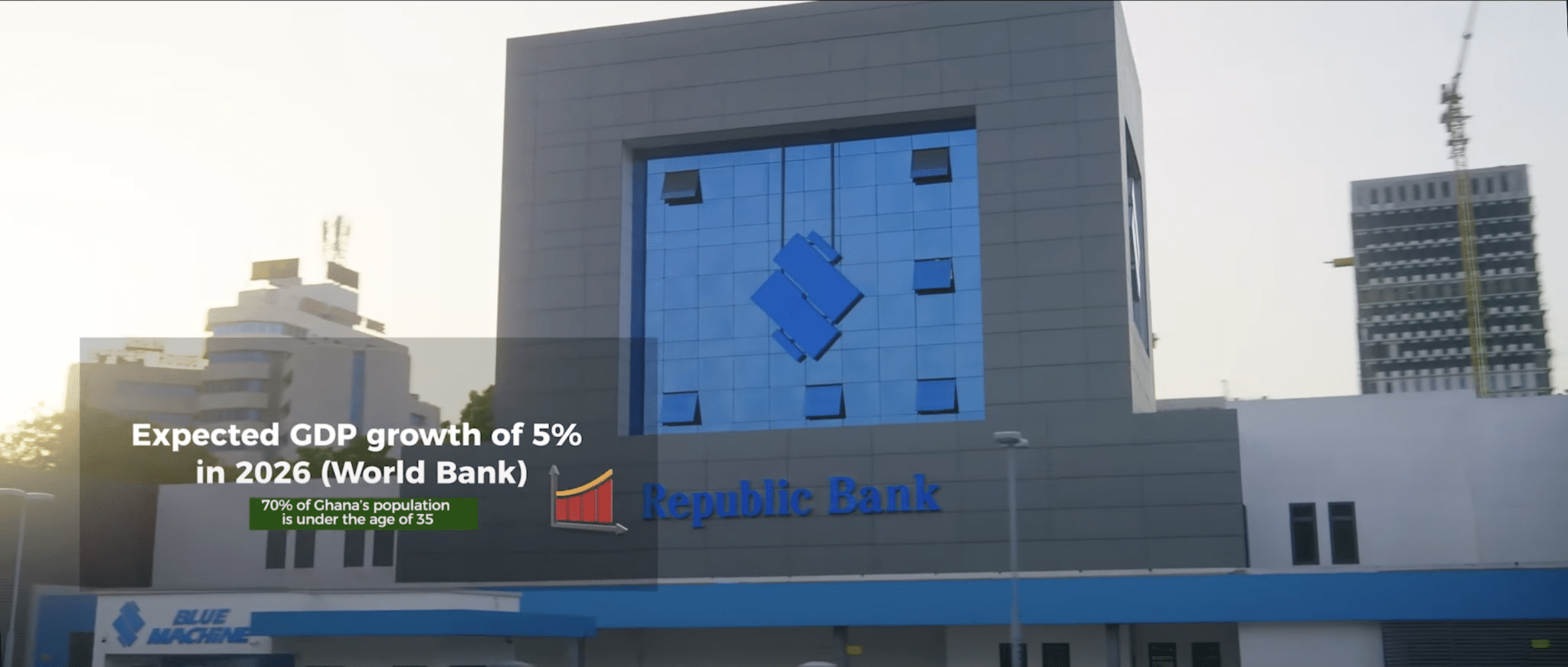
After navigating economic challenges, Ghana is set to re-emerge as a premier business destination in West Africa, growing annually over 5% in the next couple of years. Key factors are stability, untapped resources, a business-friendly framework, and a creative, tech-savvy start-up ecosystem
Ghana is back on track to regain its position as a booming business hub in West Africa. After a challenging period marked by post-COVID deficits, a credit slump, and the war in Ukraine, the economic outlook is more promising than ever. S&P forecasts the nation’s economy to grow by 5.1% in 2024 and 5.4% in 2025. Additionally, Q1 2024 saw the country’s fastest expansion in two years, with a rise of 4.7%, driven by diverse sectors such as mining, information and communication, agriculture, construction, hospitality, and food services.
The approval of $300 million and $250 million aid loans by The World Bank in early 2024 and the recent deal with two bondholder groups to restructure around $13 billion of international debt further bolsters confidence.
Already the fastest-growing economy in Africa in 2019, Ghana has much more in its favor. Besides a rich resource base, its unique stability and security in a turbulent region stand out. Ghana’s geographical position as the ‘Gateway to Africa’ is enhanced by hosting the permanent seat of the African Continental Free Trade Area (AfCFTA).
“With the advent of the African Continental Free Trade Area, we’ve trained about 2,500 SMEs to support them with raw materials in the distribution chain across the continent,” states Dr. Clement Osei Amoako, President of the Ghana National Chamber of Commerce and Industry (GNCCI).
Leap for Commodity Markets
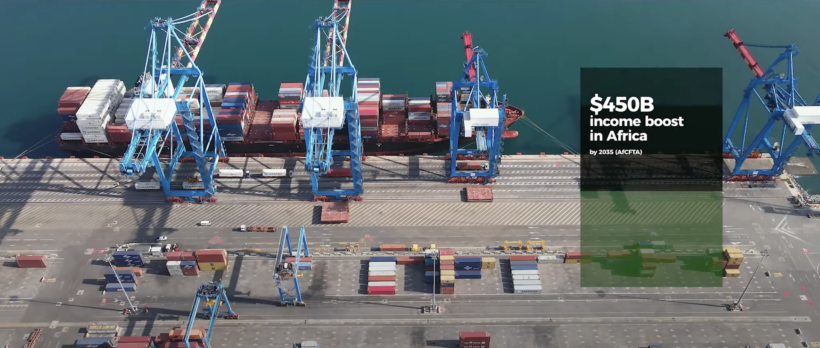
Mining and energy remain key sectors. Ghana is the largest gold producer in Africa, generating $7.6 billion in export income in 2023, with substantial reserves pivotal in stabilizing the currency. The recent discovery of huge lithium deposits, valued at $150 billion by the University of Mines and Technology Tarkwa in 2022, is attracting international interest. Additionally, Ghana has significant deposits of manganese, bauxite, and diamonds.
Due to the discovery of massive offshore deposits in 2010, Ghana produces over 180 thousand barrels of oil daily and has 8 trillion cubic feet of natural gas reserves. With the aim to kick off the first phase of a $60 billion development plan to boost the nation’s energy sector and to increase the nation’s GDP by 70% by 2036, the government signed in June 2024 a $12 billion agreement with the TCP-UIC international consortium.
According to the Institute for Security Studies (ISS) in South Africa, with war in Gaza and Ukraine dragging on, and a global risk aversion from investors, the rise in gold prices could favor major producers such as Ghana. Plus, major world markets are looking for alternative sources of oil and other commodities, which may further fuel African economies.
Africa’s Potential Food Basket
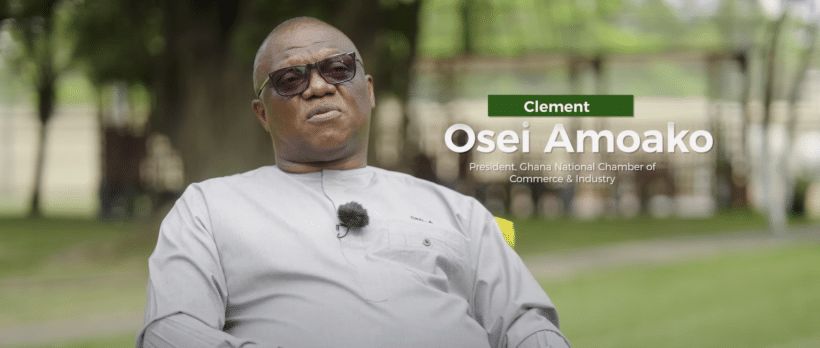
Agribusiness offers vast possibilities for foreign investment, thanks to diverse commodities, a well-endowed drainage basin, and proximity to European markets. Ghana is the second-largest cocoa producer globally, yielding over 800,000 tons of beans annually. Its rich soils also support a variety of crops such as oil palm, cashew, maize, cassava, and soybean.
According to the Ghana Irrigation Development Authority (GIDA, 2018), the nation boasts 13.5 million hectares of land, with only about 50% currently under cultivation.
“There are large opportunities at the base level. There’s enough land available for us to try smart farming,” says Amit Agrawal, Country Manager of Olam Agri in Ghana. “Agriculture, if well organized and developed, can feed Africa,” adds Subhi Accad, CEO of Universal Motors.
“We have also provided incentives for those in agribusiness to set up factories within a year,” states Dr. Clement Osei Amoako. “You have the opportunity to develop your business over five years.”
A significant part of investment potential lies in building an agro-industrial sector to add value and localize the food production chain. “There is much to be done in processing, packaging, exporting, and adding value to different products. Investors are very enthusiastic about this,” reflects Armelle Sae Jeanne, Managing Director of the Chamber of Commerce and Industry France-Ghana (CCIFG).
Incentives and Business-Friendly Environment
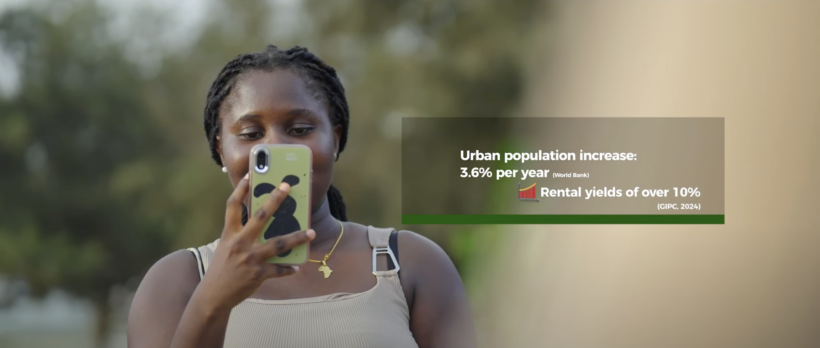
Ghana benefits from government incentives and business-friendly initiatives. The World Bank has dubbed Ghana “one of the easiest countries to do business in West Africa.” According to Mondaq, registering a sole proprietorship business in Ghana is straightforward, taking from 2 to 7 days. On average, 70,000 sole proprietorship businesses are registered in Ghana yearly at the Registrar General’s Department.
Tax deductions and free-trade zones create additional opportunities. “We offer location incentives based on where you establish your industry. In Accra, the tax rate is about 20%, while in other regions, it’s 15%,” Dr. Osei Amoako adds.
Despite elections looming in 2024, the nation’s history of peaceful transitions and a cross-party 40-year development plan drafted in 2017 are further safeguards against radical policy changes and unstability.
Real Estate: the unwavering giant
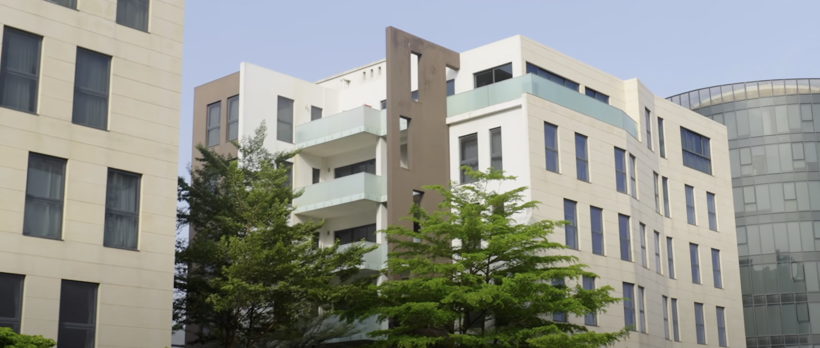
Construction and real estate are among the fastest-growing and most resilient sectors, even during crises. They are expected to maintain an annual growth rate of 5.48% from 2024 to 2028, reaching a market volume of $567.60 billion, partly due to a 2% annual population growth. The construction sector alone reached $9.9 billion in 2023.
“It’s a safe place to invest. Real estate yields are generally 10 to 12%, along with property appreciation,” says Joe Leslie Obeng-John, CEO of Cornerstone Developments.
“Ghana is attracting foreign direct investment. There is significant demand for quality accommodation, retail spaces, and mixed-use spaces,” Cynthia Acquaye, COO of CH Group and Executive Director of Goldkey Properties reflects.
———————————————–
Ghana Documentary Series 2024: Africa’s Golden Opportunity
———————————————–
Tech, Start-Ups, and Creative Industries

The tech sector has boomed in recent years, with 36% growth in 2023 and a thriving start-up ecosystem. The country boasts over 100 tech accelerators, according to the International Trade Administration. As Sae Jeanne notes, “Ghanaians are very tech-savvy, with 70% internet penetration.”
Education has been key, with over 2,400 students enrolled in STEM schools throughout the nation. As Minister for Education Hon. Dr. Yaw Osei Adutwum envisions, “We will become the place in Africa where people come to see innovation.” “You have Afua Kobi Ampem, a girl STEM High School where the focus is on aviation. These girls are developing, designing, and deploying drones,” he illustrates.
Business incubators and impact funding are also flourishing in creative industries. “We see it as a tool for inclusive growth and development. Africa’s prosperity will be driven by the creative and cultural industries,” says Roberta Annan, Founder and CEO of Annan Capital Partners and the Impact Fund for African Creatives (IFFAC). “Fashion, films, music, and other sectors are gaining momentum,” adds Jesse Rannells, Partner and Head of IFFAC Ventures.
Ghana’s arts and culture scene is vibrant. “Top of the list for me is our fashion and clothing. More and more, Ghanaian designers are making their mark globally. For example, Beyoncé has worn outfits made by local designers,” actress and media personality Naa Ashorkor indicates.
Ghana Return Program and Tourism Paradise

Ghana’s rich cultural scene, safety, and breathtaking scenery make it West Africa’s top tourism destination, with over 1.4 million visitors in 2023. The nation boasts over 500 km of lively beachfronts, peaceful wellness resorts, historical castles, and jungles and savannas filled with adventures. “Every time we’ve implemented a visa-on-arrival policy, the numbers go up. It’s something we’re working on,” Awkasi Agyeman, CEO of the Ghana Tourism Authority remarks.
The Ghana Return Program, spearheaded by the government, invites the African diaspora worldwide—particularly African Americans—to return to the African motherland. Since 2019, over 1,500 African Americans have moved to Ghana, bringing investments and skills. “Culture, leisure, heritage… everything in one country. Ghana is a very safe destination, where you will feel welcome and connected to the rest of Africa,” Agyeman concludes.
While the lasting impact from hosting the 2023 African Games in Accra remains to be seen, the West African nation has a golden opportunity to capitalize on its unique advantages and the needs of the global market to build an enduring legacy as the business entry port in Africa.
This article is brought to you by Strategic Investment Media (SIM.), an acclaimed multi-media agency specialized in business intelligence, branded video production and country-branding campaigns and producers of the recent CNBC Africa Ghana Documentary Series 2024: Africa’s Golden Opportunity. Get in touch for fresh country-branding projects through our website sim-globalmedia.com.

